#couches as symbolism
Explore tagged Tumblr posts
Text
destiel lamp to buddie couch pipeline but this time the main defender of the furniture metaphor is one half of the ship himself
#buddie#destiel#why lamp#couches as symbolism#911 fox#spn#evan buckley#eddie diaz#dean winchester#castiel#supernatural#buck x eddie#own post#couch theory#lamp theory#ray watching stuff#ray.talks#fandom
177 notes
·
View notes
Text
the shaving of the moustache, the dance sequence, him lying on the couch, buck showing up at his door (without knowing what happened yet)... what an insane ending!!!
#i'm thinking about the couch theory AGAIN#i never stopped thinking about it tbh#the setup is SETTING UP!!!!#buddie#evan buckley#eddie diaz#911#911 abc#911 spoilers#i'm going insane rn goodbye#there's so much symbolism i can't#couch theory
172 notes
·
View notes
Text
the ending of 8x06 was insane I truly feel like I just watched a fanfic come to life. eddie’s dance party? perfection. buck coming over post bt breakup with a case of beer? perfection? eddie answering the door for him in his undies? perfection. buck just walking straight inside because it’s eddie’s house and he’s not really a guest? perfection. eddie clambering over the couch to sit with him? perfection.
#I could write an essay about the symbolism of eddie hopping over the couch to join buck and what that could mean#but I won’t#but I feel so strongly about that#911#buddie#911 abc#buddie 911#eddie diaz#evan buck buckley#911 buddie#911 8x06#molly watches 911
75 notes
·
View notes
Text
You ever think about the progression of vashwood's relationship through hands and wolfwood's "I'm no longer fit to hold you guys" and "hold them in your arms and don't let go!" and how wolfwood forces vash's hand to point a gun at his head and how vash has one hand that is a nuclear bomb and the other hand was lost to a brother and replaced with another weapon and how wolfwood often carves detailed little birds with his hands and the way they reach for each other and just barely miss throughout volume 10 and how vash's hand digs into wolfwood's back when they finally do catch other because he's just realized what's going to happen and how they meet with a handshake and part with a toast and how a gun is something you have to use with your hands and how vash and wolfwood are both living weapons and how a bird does not have hands but wings and how this story ends with vash reaching out a hand and sprouting wings. I do. I think about it a lot 🥲
#trigun#trimax spoilers#GOD. AUGH. GRAGHAHAHAH. -> me when there's symbols and motifs and patterns and whatnot#dont even get me STARTED on the omitted scene that was likely too intimate for the audience's eyes of vash picking ww up from the couch#and carrying him to his grave and carefully burying him alone all with JUST HIS HANDS#YOU EVER THINK ABOUT THAT HUH?!?!?!#I NEED TO PUT THIS MANGA BETWEEN MY TEETH AND SHAKE IT AROUND#NIGHTOW BRING ME YOUR NECK. I NEED TO WRING IT. LOVINGLY.
213 notes
·
View notes
Text



࣪ . * ゚ ྀ bring the light of a diying star ◌𓈒 𓇼





#͏͏͏ ͏͏͏ ͏͏͏ ͏͏͏ ͏͏͏ ͏͏͏ ͏͏͏ ͏͏͏ ͏͏͏ ͏͏͏ ͏͏͏ ͏͏͏ ͏͏͏ ͏͏͏ ͏͏͏ ͏͏͏ ͏͏͏ ͏͏͏ ͏͏͏ ͏͏͏ ͏͏͏ ͏͏͏ ͏͏͏⠀#𓇼ㅤ ㅤ𓂂ㅤㅤ ˚ㅤㅤ ◌#ask me .ᐟ#y-vves#moodboard#moodboard core#strawberry#symbols#coquette#yves aesthetic#yves moodboard#yves montand#yves messy icons#loona yves#yves messy layouts#yves kpop#yves archive moodboard#yves bios#yves icons#yves messy moodboard#archive moodboard#archive mb#silver#silver moodboard#white moodboard#white messy moodboard#grey moodboard#grey archive moodboard#grey couch#cute symbols
104 notes
·
View notes
Text
The mess on the couch Margaret bought - that can’t be cleaned - the mess created by bringing a child into the world - while death is looming nearby.
How the whole scene is a metaphor for Bucks life - how his entrance into the world was messy and death was looming - how his birth was an attempt to keep death at bay but it came anyway and has held the hand of the Buckleys ever since. How the Buckleys tried to clean up the mess but their secret created an uncomfortable life for Buck - one that couldn’t be kept hidden and once revealed exposed the mess. How the couch is unsalvageable in much the same way Bucks relationship with his parents is - the mess will always be there in the centre of things.
How the couch is orange and how orange is a colour of superficiality arrogance and pride.
How Kameron batted Natalia away initially but ended up holding her hand - holding the hand of death while bringing life into the world - the same way Margaret was when Buck was born.
How Buck holding that baby and needing a few seconds but ultimately being able to hand it over and let go is a representation of him breaking the cycle even if he is still connecting himself to death he has broken one link in the chain - the link to his birth.
#I don’t know where im trying to go with this#just that there is more to that scene and that couch#and that Natalia needed to be there as deaths representative for buck to break free of the death aspect of his birth#and how the couch being destroyed is in some way a representation of the superficiality of the Buckley parents buying him a couch (repeating#their cycle of giving gifts and attention when buck is hurt)#and it’s destruction is buck acknowledging/accepting that about them and choosing to move on from it#how Buck hasn’t faced his more recent connection with death so Natalia being around makes sense and how her helping him pick a couch#is symbolic of bucks next journey - giving him outside perspective on his death (hence her being on the balcony)#so much couch theory it’s making my head spin!!!#kym rambles#911 on fox#911 fox#evan buckley#bucks couch#911 abc
193 notes
·
View notes
Text


Drew @cauldronfamiliar's Lacrima and Alice yesterday They managed to talk me into actually posting them
#404 art#digital art#cauldronfamiliar#404 gifts#404 sketches#friend's character#love these two gals#I've drawn like ten Lacrimas already#in one version of this drawing she had shoes on the couch which is much more cursed than the satanic symbols on her sweater
15 notes
·
View notes
Text
the thing thats making me a little cuckoo bananas is that eddies couch is kinda a fandom thing. like yes we know buck sleeps there sometimes but we blew it into the significant symbolic object it is to buddie fans now. which is totally fine and great in its own right but then the show....the show made it a thing. an actual canon thing. the show said "the couch is a metaphor" and we said "so how does eddies couch play in" and they???? had an answer for us??????
#like i do not think eddies couch was significant to the narrative before last night#it was significant to US#and then the show had a little conversation with us about it#do i think its necessarily their reaction to our attachment to the symbolism of eddies couch? no#could be but don’t think so#its more that im just amazed at the ways things are going our way lmao#buddie#911 fox#911 spoilers
194 notes
·
View notes
Note
Do you think bucks loft is going to burn down in episode 5
I think the loft serves a meta purpose on Buck's journey to find home and they won't get rid of it until Buck is done figuring his place in the world out. I don't see that happening by 805. So no. I don't think they'll burn down the loft.
#idk if i can make a meta on that make sense so ill never write it. but the loft is a symbol bucks quest for love while being a marker#of failing to realize what he need in them. from the fact that ali picked and decorated to the way taylor and tommy kiss him to the way#natalia runs from him to the couch of it all. they use the loft to deal with Bucks emotions and its very interesting when you look at how#the loft is an open space and buck doesn't know how to hide his feelings. everything is connected and buck himself navigates through it#while letting the edges bleed together. i think in a lot of ways buck treats the loft the same way he treats his body. just another tool#in a sense. it's something he needs. he takes care of it. hes somewhat comfortable in it but its not home. until bucks home in his body#hes not going home literally by getting rid of the loft. at least thats my opinion on it.#im not gonna write a meta she says as she writes a meta#anyway#911#i really need a tag for asks#anon 😌#911 spoilers#911 speculation
15 notes
·
View notes
Text
something something grace's first sung words being lost at sea something something calliope's first sung words being with a fire furious i have burned my tongue.
the ocean and the fire symbolism guys. the ocean as purposelessness. the fire as purpose. grace adrift at sea, calliope lighting a match that consumed her. do you hear me.
#this games symbolism is SO GOOD#theres so much more too.#the lighthouse. the stained glass windows. the apartment couch.#AUGH i love it#stray gods#stray gods grace#stray gods calliope
31 notes
·
View notes
Text
My Mom Is Cool
My mom is unfamiliar with the term "robofucker" and has probably not heard me say "robot porn" because i think i usually say Allen or just Transformer or something
Anyhow she just referred to one of my stories i was showing her the stats on (my mom likes following my author blog progress and she also sometimes reads the reviews with me we're silly yes) as Techno Smut and I
how was I today years old hearing that for the first time
I love it
I'm stealing it
T e c h n o s m u t
conversations I never thought I'd have with my mom, I adore her.
#Dat Rambles#Gigglesnort#My mom keeps asking when I'll release the next chapter of Travel Buddies#*profuse sweating*#(she doesn't nag me or anything she just asks every now and then and it's totally okay I'm just being dramatic)#Soon i swear#Maybe next month maybe next year I DUNNO I'M TRYING I SWEAR IS NOT READY YET#hnmnnnn#Also the story in question of course is Leaking Down#Her response when I showed her the cover art for Gladiators of Kaon:#“Ooh looks like a sci fi horror.”#And i was like:#*holding up a finger with mouth hanging open but nothing comes out*#*leading symbol*#*brain.exe reboot*#"Well shit you're right. But there's smut so like#It's a sexy horror book?#HOW DID I GET HERE I DON'T EVEN WATCH HORROR MOVIES I HIDE BEHIND THE COUCH#i want to say it's just dystopian but Cybertron has a history as fucked up as Earth's#I mean i can't look at Empurata and go “nah that's not horror” no really that's honestly REALLY FUCKED UP#anyhow#*sips tea*#Back to my bullshit I go
7 notes
·
View notes
Text
no but Buck just walking right into Eddie's house to sit on the couch and instantly fall asleep there that's just hgnfhhfjfhd making me want to eat glass, that's his couch he's not really a guest
#911 fox#couches as symbolism#couches couches#buddie#911 spoilers#evan buckley#eddie díaz#own post#ray watching stuff#buck x eddie#oliver stark
108 notes
·
View notes
Text
crying sobbing throwing up thinking about the Kid Pirates at Gran Tesoro's resort. Idc about the actual plot of Film Gold please just consider them all done up in hot ass outfits, Kid's got on the most godawful pair of sunglasses ever conceived of (and he's NAILING it), nobody has on a tie. Just something about that rowdy bunch on a big floating resort sets my brain on fire.
#av speaks#OP#Kid Pirates#thoughts from the fainting couch#people usually show up there for fame and fortune#or as a symbol of status#and they're maybe perhaps agitated by the flippant way Kid's crew treats the place#but they just keep winning#and what's a guy who makes things into metal gonna do about a guy who can assign magnetism to things#lmfao#lol even
13 notes
·
View notes
Text
grief is like a really ugly couch
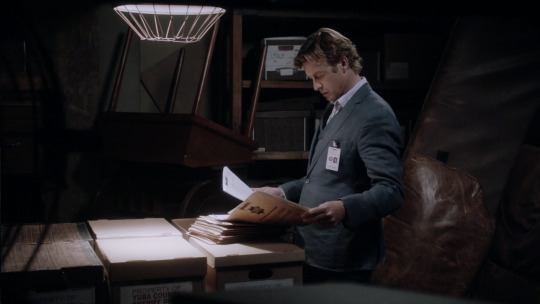
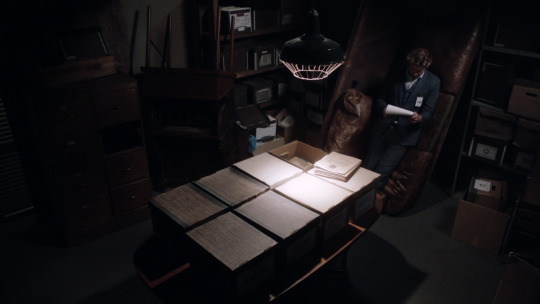
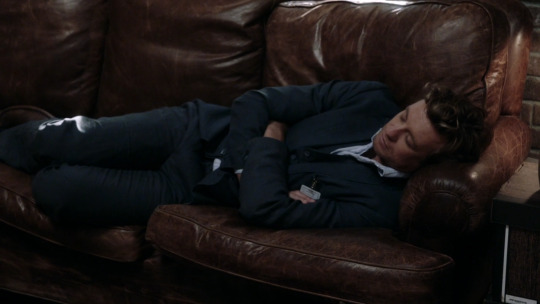
I think grief is like a really ugly couch. It never goes away. You can decorate around it; you can slap a doily on top of it; you can push it to the corner of the room—but eventually, you learn to live with it. ― Jodi Picoult, Leaving Time
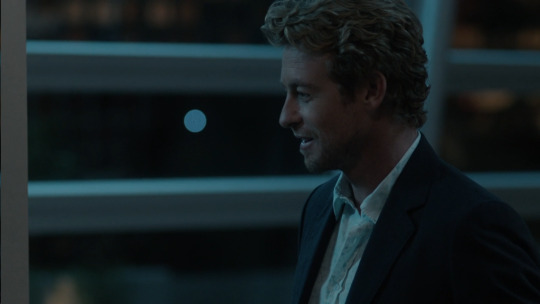
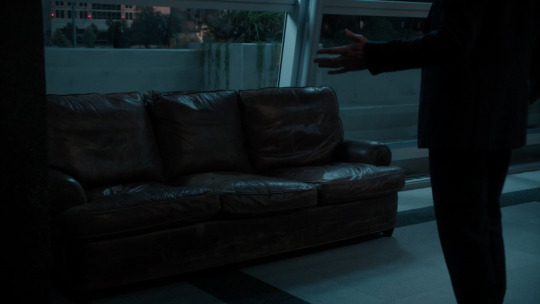
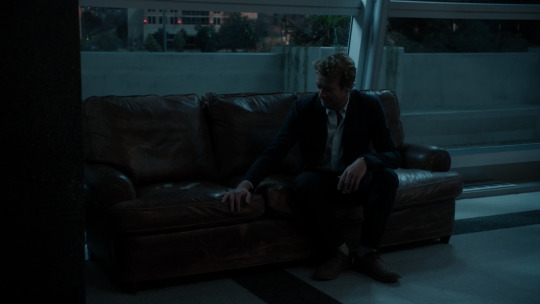
#the mentalist#quotes#patrick jane#i would say web weaving but there's not a lot of web weaving happening#initially I also had a bit of an essay accompanying this but it disappeared because of a tumblr glitch + my own stupidity#and i'm too tired to write it prettily but i still wanna write it so it'll be in the tags#a cute little fun surprise for whoever cares about and reads tags#so i made a different post talking about jane's grief but i was upset i didn't have enough space for the couch (pun unintended)#and i was thinking this morning about this quote and jane's couch and how it could be interpreted as a physical manifestation of his grief#as well as his willingness to open up to people#1. i love grief; grief is important to me. grief is permanent and i have been aware of grief in a form of another (in my own personal life)#for a very very very long time. so to see it in this show is...significant to me. i cherish this#now onto the actual analyzing. of course they never intended the couch to be a symbol for grief; but it becomes so.#he leans on the couch when he opens the Red John files; for support most likely - and it's a beginning of the process of dealing with grief#he is the only one who uses the couch. everyone knows it as jane's couch#in S4E23 Cho uses it briefly to rest and Rigsby asks him if Jane knows he's using his couch#Erica tries briefly (also in S4) to sit on the couch but he doesn't allow her the space#in fact the only two people we see that use the couch are Teresa Lisbon and Dennis Abbott#and this is the part about emotional availability. he only shares the couch with people whom he trusts#With Lisbon twice even#the couch is grief and the couch is love; the couch is support#there's nostalgia for the CBI times but there's also more to it#and that quote makes me go absolutely feral because#'eventually you learn to live with it' 😭 eventually you learn to live with grief and eventually you learn to accept it as part from yself#andand he is happy to see the couch; he missed the couch#-> you are not free from your grief but in healing you learn that it's okay; you cherish your grief; it was there with you and for you#yea anyways i will never not go mad about grief and trauma and how it's portrayed and handled.#and i already have 2 more sorta-proper essays that i want to write on the topic asdgfhdhjk. yea i'm literally not gonna stop
209 notes
·
View notes
Text

I love how Christopher's shirt is turquoise which is a mix of green and blue. Just to add to this Green/Blue theme, on rewatching the episode Eddie has a Green phone case and Buck has a Blue one.
#evan buck buckely#9-1-1#9 1 1 buddie#eddie díaz#9 1 1#christopher diaz#couch metaphor#buckley diaz family#blue/green symbolism
123 notes
·
View notes
Text
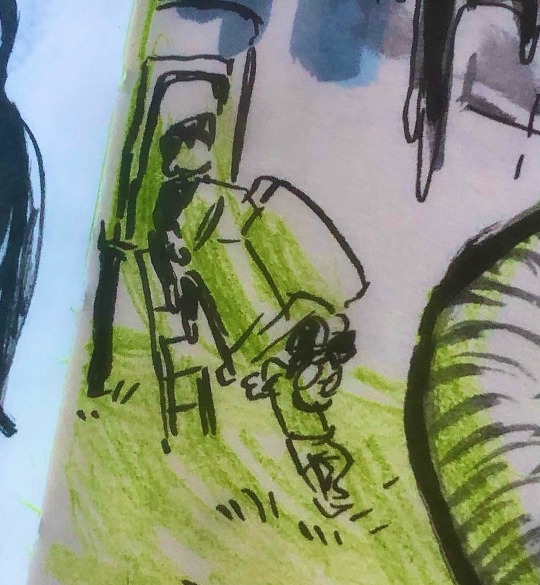

they couldn’t get it to fit
#ocs#august#mindy firefly#something something. um.…….nevermind…..Giggles#only a matter of time before the couch rots#and then mindy fucking burns it!!!!#the couch is sooo significant it representss Everything….#what ap lit does to a mf#my eyes opened Magically#i was watching bcs and saw all the symbolism…. beautiful…..#i loooove metaphors and analogies and shit. heart SINGS
29 notes
·
View notes